Honorary and Affiliated Appointments
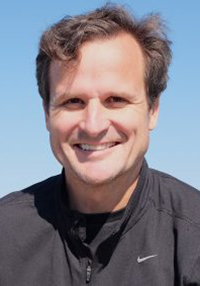 J. Michael Barker
J. Michael Barker
Professor of Practice, Vice Chancellor for Information Technology and Chief Information Officer, University of North Carolina at Chapel Hill
As Vice Chancellor and CIO, Barker has responsibility for Carolina’s central IT portfolio. He has proven his ability to recognize evolving challenges and provide long-term direction for the development and implementation of information technology initiatives at Carolina. As Vice Chancellor and a member of the Chancellor and Provost’s leadership cabinets, he plays a central role in implementing ITS initiatives and objectives in Carolina Next: Innovations for Public Good, the University’s strategic plan.
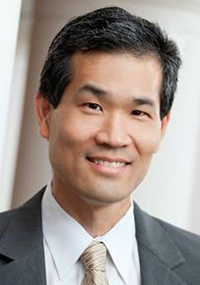 Andrew Chin
Andrew Chin
Paul B. Eaton Distinguished Professor of Law, UNC School of Law
Andrew Chin holds a JD from Yale University and a PhD from Oxford University. He earned his doctorate studying combinatorial mathematics and computational complexity theory at St. Catherine’s College, Oxford, on a Rhodes Scholarship and a National Science Foundation Graduate Fellowship. After graduating from Yale, he clerked for Judge Henry H. Kennedy Jr. of the United States District Court for the District of Columbia, and assisted Judge Thomas Penfield Jackson and his law clerks in the drafting of the findings of fact in United States v. Microsoft Corporation. He then practiced in the corporate and intellectual property departments in the Washington, D.C., office of Skadden, Arps, Slate, Meagher & Flom, LLP. Chin joined the faculty of the UNC School of Law in 2001. He teaches antitrust, intellectual property, and patent law.
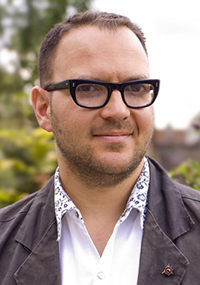 Cory Doctorow
Cory Doctorow
Professor of Practice
Cory Doctorow is a science fiction author, activist, journalist, and blogger, and co-editor of Boing Boing. He is the author of Walkaway, a novel for adults, a young adult graphic novel called In Real Life, the nonfiction business book Information Doesn’t Want to be Free, and YA novels like Homeland, Pirate Cinema, and Little Brother. Doctorow works for the Electronic Frontier Foundation and is an MIT Media Lab Research Affiliate and Visiting Professor of Computer Science at Open University. He co-founded the UK Open Rights Group. Born in Toronto, Canada, he now lives in Los Angeles. Photo by aula Mariel Salischiker, pausal.co.uk
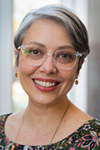 María R. Estorino
María R. Estorino
Vice Provost for University Libraries and University Librarian
For over 20 years, Estorino has worked in academic research libraries and cultural heritage institutions. Before coming to Carolina, Estorino was vice president of museum collections at History Miami Museum in Florida. Prior to that, she spent 14 years in positions of increasing responsibility at the University of Miami Libraries, concluding in 2013-15 as the Esperanza Bravo de Varona Chair of the Cuban Heritage Collection.
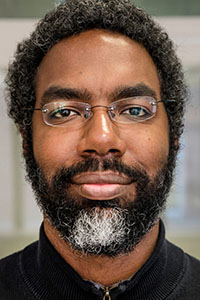 Deen Freelon
Deen Freelon
Professor, Annenberg School of Communications, UPenn
Deen Freelon is the Allan Randall Freelon Sr. Professor at the Annenberg School for Communication. A widely recognized expert on digital politics and computational social science, he has authored or coauthored over 60 book chapters, funded reports, and articles in journals such as Nature, Science, and the Proceedings of the National Academy of Sciences. He was one of the first communication researchers to apply computational methods to social media data and has developed eight open-source research software packages. The first of these, ReCal, is a free online intercoder reliability service that has been running continuously since 2008 (when he was a Ph.D. student) and used by tens of thousands of researchers worldwide. He has been awarded over $6 million in research funding from grantmakers including the Knight Foundation, the Hewlett Foundation, the Spencer Foundation, and the US Institute for Peace. He was a founding member and remains Senior Researcher at the Center for Information, Technology, and Public Life at the University of North Carolina at Chapel Hill, one of five academic research centers in the Knight Research Network (est. 2019) to receive its highest level of funding.
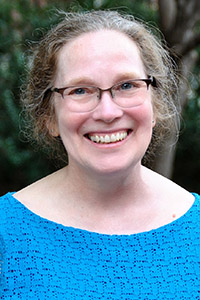 Mary Grace Flaherty
Mary Grace Flaherty
Professor Emeritus, UNC School of Information and Library Science
A former Institute of Museum and Library Science (IMLS) fellow and Fulbright Scholar, Mary Grace Flaherty has over 25 years of experience working in a variety of library settings, including academic, medical research, special and public. She holds a PhD in information science & technology from Syracuse University, an MLS from the University of Maryland, and an MS in behavioral science from Johns Hopkins University. She has published articles in Library & Information Research, Library Quarterly, the Journal of Consumer Health on the Internet, and the Journal of Education for Library and Information Science, among others. Her books include Promoting Individual and Community Health at the Library (American Library Association, 2018), The Library Staff Development Handbook (Rowman & Littlefield, 2017), and Great Library Events: From Planning to Promotion to Evaluation (Rowman & Littlefield, 2021). She received the Deborah Barreau Award for Teaching Excellence at SILS in 2018.
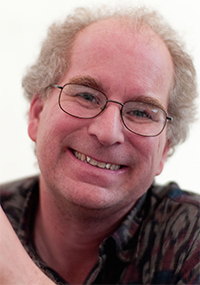 Brewster Kahle
Brewster Kahle
Professor of Practice; Founder & Digital Librarian, Internet Archive
A passionate advocate for public Internet access and a successful entrepreneur, Brewster Kahle has spent his career intent on a singular focus: providing Universal Access to All Knowledge. He is the founder and Digital Librarian of the Internet Archive, one of the largest libraries in the world. Soon after graduating from the Massachusetts Institute of Technology where he studied artificial intelligence, Kahle helped found the company Thinking Machines, a supercomputer maker. In 1989, Kahle created the Internet’s first publishing system called Wide Area Information Server (WAIS), later selling the company to AOL. In 1996, Kahle co-founded Alexa Internet, which helps catalog the Web, selling it to Amazon.com in 1999. The Internet Archive(link is external), which he founded in 1996, now preserves 30 petabytes of data—the books, Web pages, music, television, and software of our cultural heritage, working with more than 450 library and university partners to create a digital library, accessible to all.
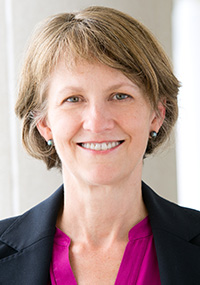
Anne Klinefelter
Professor of Law and Director of the Law Library, UNC School of Law
Anne Klinefelter teaches courses on privacy law and serves as faculty advisor to the North Carolina Journal of Law & Technology. She writes and speaks on information policy and law topics including privacy and confidentiality law, particularly as these areas apply to libraries and legal information management. Professor Klinefelter has been active in library associations and library education. In 2012, she received the Distinguished Lecturer Award from the American Association of Law Libraries (AALL.) She served as chair of the American Association of Law Schools Section on Law Libraries, president of the Southeastern Chapter of AALL, and chair of the Copyright Committee of AALL. She has also held leadership roles in two library consortia and served on the Board of Editors for Law Library Journal. She currently serves on the UNC School of Information and Library Science Administrative Board and as faculty advisor for students in dual degree graduate programs linking law and library or information science at UNC.
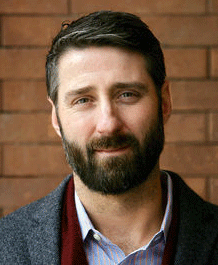 Daniel Kreiss
Daniel Kreiss
Professor, UNC Hussman School of Journalism and Media
Daniel Kreiss is an Associate Professor in the UNC Hussman School of Journalism and Media and a Principal Researcher with the Center for Information, Technology, and Public Life (CITAP). Kreiss’s research explores the impact of technological change on the public sphere and political practice. In Taking Our Country Back: The Crafting of Networked Politics from Howard Dean to Barack Obama(link is external) (Oxford University Press, 2012), Kreiss presents the history of new media and Democratic Party political campaigning over the last decade. Prototype Politics: Technology-Intensive Campaigning and the Data of Democracy (Oxford University Press, 2016) charts the emergence of a data-driven, personalized, and socially-embedded form of campaigning and explains differences in technological adoption between the two U.S. political parties. Kreiss is an affiliated fellow of the Information Society Project at Yale Law School and received a PhD in Communication from Stanford University.
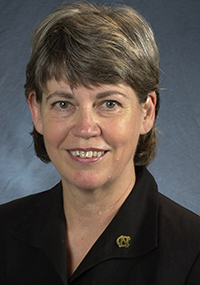 Joanne Gard Marshall
Joanne Gard Marshall
Alumni Distinguished Research Professor, UNC School of Information and Library Science
Joanne Gard Marshall served as dean of SILS from 1999-2004. Her areas of research interest include the evaluation of library and information services, workforce issues, evidence-based practice, and health information services. Her passions include linking research to practice, yoga, and gardening. In addition to her PhD in Public Health, she holds a Master of Health Science from McMaster University and a Master of Library Science from McGill University. In 2005 she received an honorary doctorate from McGill University in recognition of her contributions to improving research and practice in health library and information services. She served as president of the Medical Library Association (MLA) from 2004-05 and has received a number of awards from MLA, including a doctoral fellowship, the Eliot Prize for the most significant research in medical librarianship for 1982 and 1992, and the Donald Lindberg Fellowship in 2010. She received the Award of Outstanding Achievement from the Canadian Health Libraries Association in 1992 as well as several awards from the Special Libraries Association (SLA) including the H.W. Wilson Award in 1997, the John Cotton Dana Award 1998, and the Factiva National Leadership Award in 2004. She is a fellow of both the Medical Library Association and the Special Libraries Association.
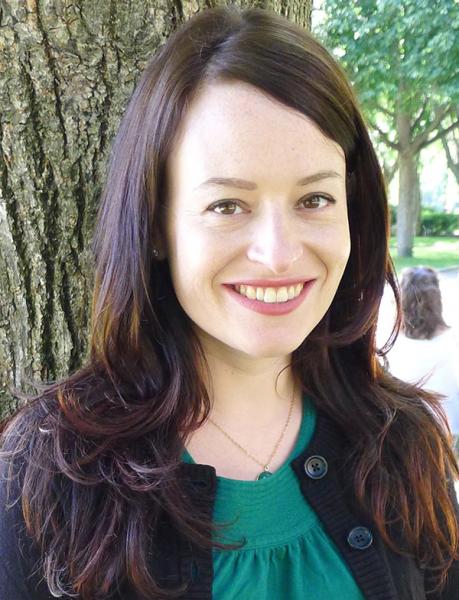 Alice E. Marwick
Alice E. Marwick
Associate Professor, Department of Communications, College of Arts & Sciences
Alice E. Marwick is an Associate Professor in the Department of Communication at the University of North Carolina at Chapel Hill, a Principal Researcher with the Center for Information, Technology, and Public Life (CITAP), a Faculty Affiliate at the UNC Center for Media Law and Policy, and Faculty Advisor to the Media Manipulation Initiative at the Data & Society Research Institute. She researches the social, political, and cultural implications of popular social media technologies. In 2017, she co-authored Media Manipulation and Disinformation Online, a flagship report examining far-right online subcultures’ use of social media to spread disinformation, for which she was named one of 2017’s Global Thinkers by Foreign Policy magazine. She is the author of Status Update: Celebrity, Publicity and Branding in the Social Media Age (Yale 2013) and co-editor of The Sage Handbook of Social Media (Sage 2017). Her current book project examines how the networked nature of online privacy disproportionately impacts marginalized individuals in terms of gender, race, and socio-economic status.
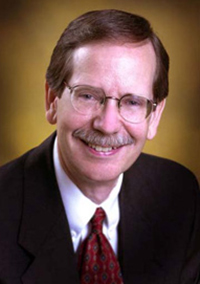 Davenport (Dave) Robertson
Davenport (Dave) Robertson
Professor of Practice; Chief, Library and Information Services Branch, National Institute of Environmental Health Sciences/National Institutes of Health, Research Triangle Park, NC (retired)
Dav Robertson (MSLS ’75) served as chief of the library and information services branch at the National Institute of Environmental Health Sciences (NIEHS) in Research Triangle Park from 1988 until his retirement in 2010. During his 22 years at the helm, he was the guiding force in the transformation of the NIEHS Library from a traditional repository of printed information to a state-of-the-art electronic-based special library capable of tailoring its services to the changing needs of the NIEHS scientific community. His eagerness to embrace new information services technologies led to NIEHS being one of the first Medline search centers. Robertson received the National Institutes of Health Award of Merit three times, the North Carolina Special Library Association’s Information Management Award (2001) and Meritorious Achievement Award (1992), and the SILS Distinguished Alumni Award (2004).
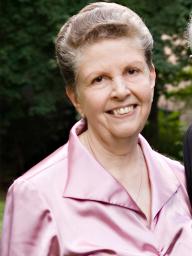 Arlene Taylor
Arlene Taylor
Professor Emerita, School of Information Sciences, University of Pittsburgh; Distinguished Adjunct Professor, UNC School of Information and Library Science
Arlene G. Taylor (PhD ’81) is Professor Emerita from the School of Information Sciences, University of Pittsburgh, where she taught for 12 years prior to retiring. Her career as a library school educator lasted more than 30 years, and included teaching at Columbia University and the University of Chicago. She is lead author or co-author of widely-used texts, including Introduction to Cataloging and Classification (6th to 11th editions) and The Organization of Information (four editions). Taylor’s international activities include serving as workshop leader, teacher, and/or consultant in Brazil, England, Thailand, and Israel. For her work in the latter two countries, she received Fulbright Senior Specialist Program Grants. She has held leadership positions on many professional association committees, including the ALA/ALCTS Catalog Form and Function Committee (Chair, 1995–1998) and the ALA/ALCTS/CCS Subject Analysis Committee (Chair, 1992–1994). Her professional contributions have been recognized with the ALA/ALCTS Margaret Mann Citation, the ALA/Highsmith Library Literature Award for The Organization of Information, and the Distinguished Alumnus Award from the University of Illinois at Urbana-Champaign Graduate School of Library and Information Science Alumni Association.
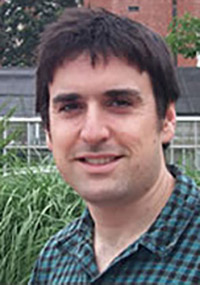 Todd J. Vision
Todd J. Vision
Adjunct Associate Professor, UNC School of Information and Library Science; Associate Professor of Biology, University of North Carolina at Chapel Hill
Todd Vision is an Associate Professor of Biology at the University of North Carolina, Chapel Hill, where he has been since 2001. He was Associate Director for Informatics at the National Evolutionary Synthesis Center from 2006 to 2015, where he developed a strong interest in open access publication, open source software and open data. In addition to his research in Evolutionary Biology and Bioinformatics, Todd has been studying the way large-scale reuse of data and information mined from the scholarly literature is changing scientific practice and the construction of knowledge. Todd has served on the board of a number of scholarly communication nonprofit organizations, including Dryad, ORCID and Phoenix Bioinformatics. He advises a number of initiatives to advance the infrastructure for research communication in the U.S. and abroad, and served on the Advisory Committee for Cyberinfrastructure to the National Science Foundation. At UNC, he co-chaired the UNC Faculty Task Force on Open Access.
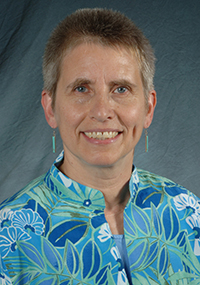 Barbara M. Wildemuth
Barbara M. Wildemuth
Distinguished Research Professor, UNC School of Information and Library Science
Barbara Wildemuth arrived at SILS in 1988. She served as Associate Dean of Academic Affairs from 2010-2016 and was the chief architect of the SILS Bachelor of Science in Information Science (BSIS) program. She was also instrumental in shaping the Master of Science in Information Science (MSIS) program and the curricula for all of the SILS degrees. Her research focuses on people’s use of information and information technologies, with particular emphasis on people’s online searching behaviors. She is an internationally recognized scholar with thousands of citations to her papers, and information schools around the world use her book on research methods, Applications of Social Research Methods to Questions in Information and Library Science, now in its second edition.
